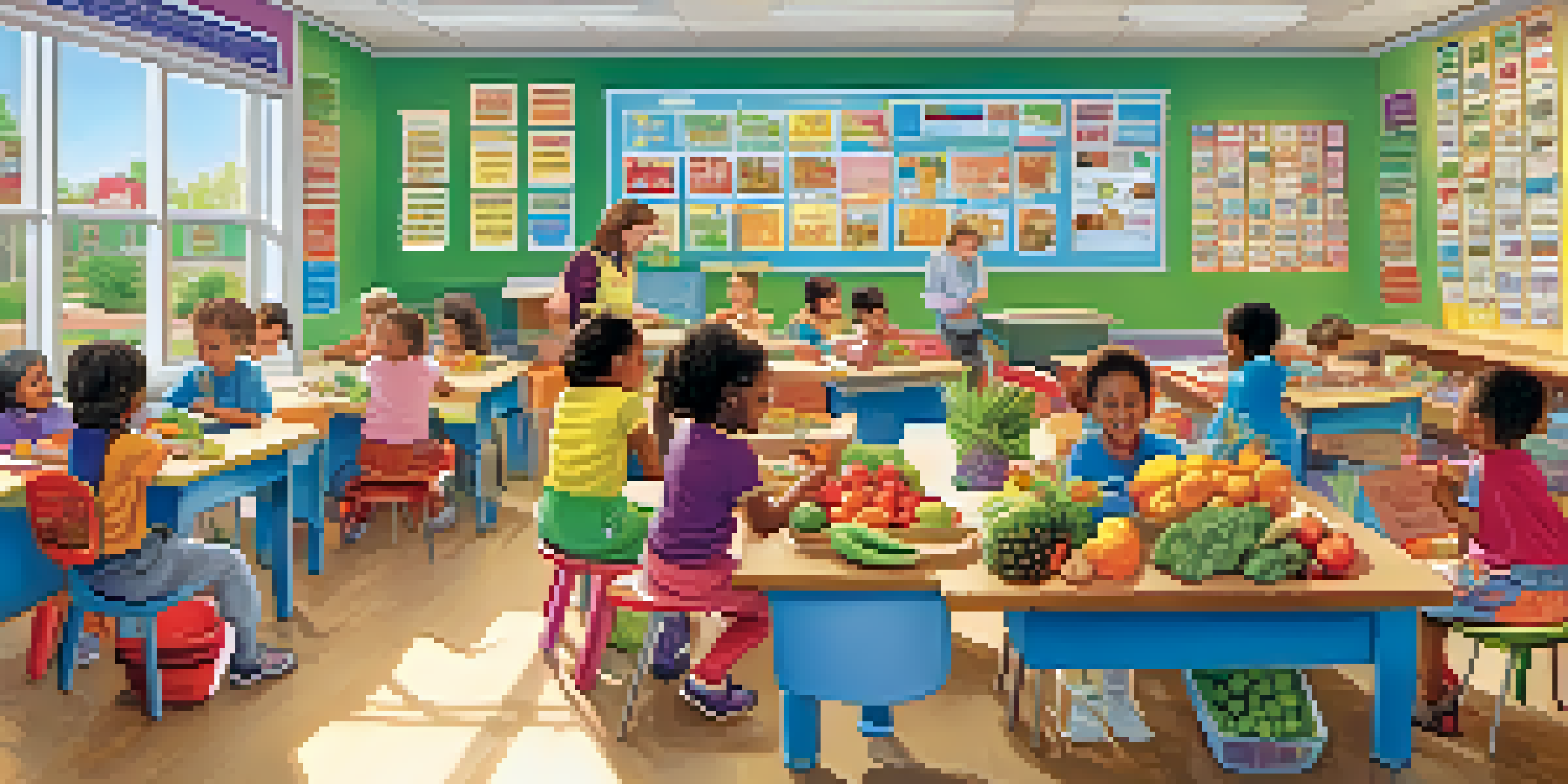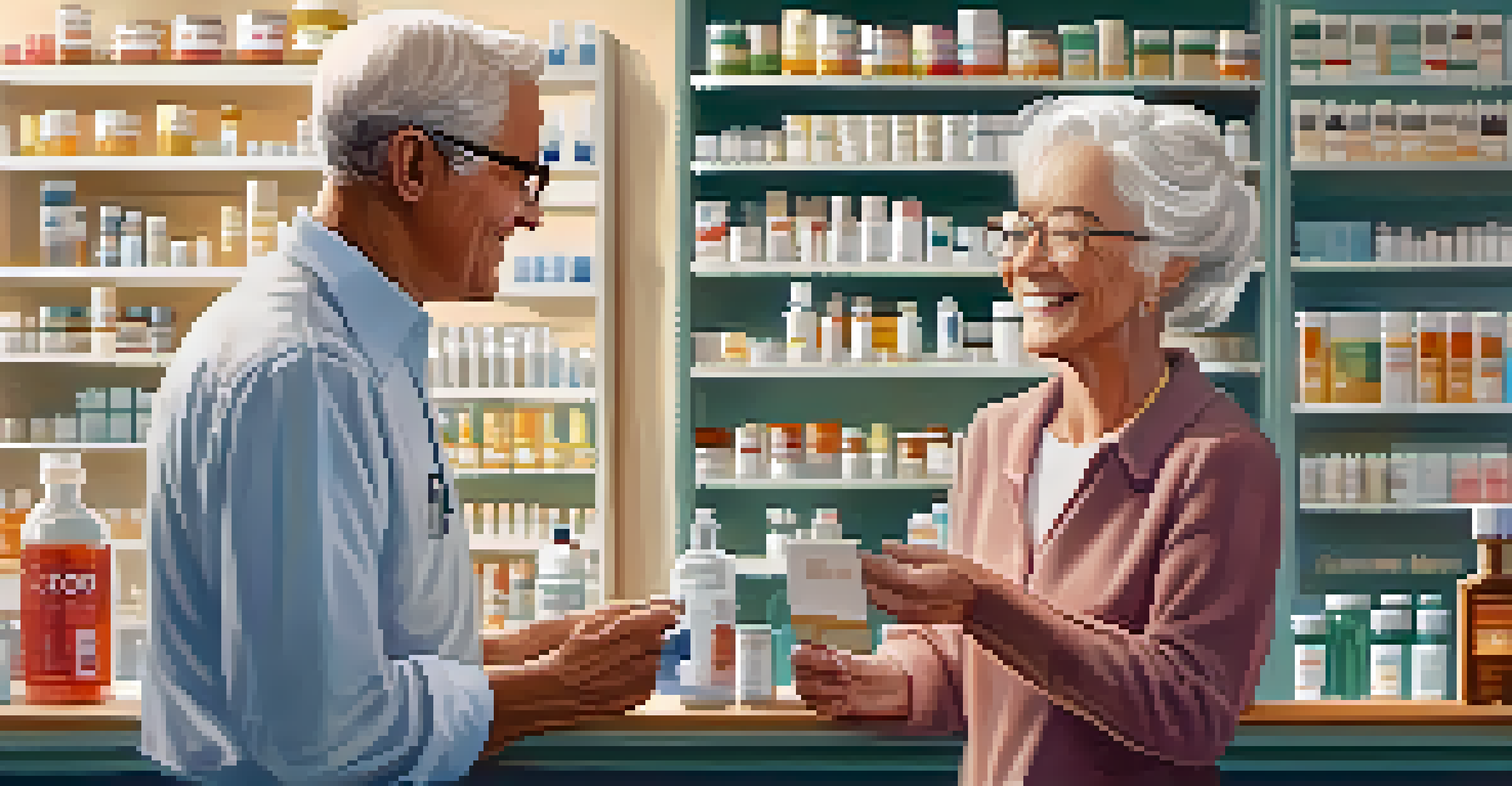Health Literacy for All Ages: Fostering Informed Choices

Understanding Health Literacy: A Key to Wellness
Health literacy refers to the ability to obtain, process, and understand basic health information. This skill is crucial for making informed decisions about one’s health and navigating the healthcare system. Just like learning to ride a bike or cook a meal, health literacy is a skill that can be developed over time.
Health literacy is a vital skill that empowers individuals to make informed health decisions and navigate the complex healthcare system.
For example, a person with high health literacy can read medication labels, understand health risks, and effectively communicate with healthcare providers. In contrast, someone with low health literacy may struggle with these tasks, leading to poor health outcomes. This disparity highlights the importance of fostering health literacy across all age groups.
By promoting health literacy, we empower individuals to take charge of their health, ultimately leading to better health outcomes and a more informed society. This commitment to health education is vital, as it helps bridge the gap in understanding complex health information.
The Importance of Health Literacy for Children
Teaching health literacy to children lays the foundation for healthy habits that can last a lifetime. By making health education fun and engaging, we can spark curiosity and a desire to learn about nutrition, exercise, and wellness. Picture a classroom where kids learn to read food labels through a game—this approach makes learning stick.

Moreover, when children understand health concepts, they can make better choices, whether it’s opting for a fruit instead of candy or knowing when to wash their hands. Early education in health literacy can also prepare them to advocate for their health as they grow older. Just imagine a teenager who confidently discusses their health needs during a doctor's visit—this is the power of early health literacy.
Health Literacy Empowers All Ages
Developing health literacy is essential for individuals of all ages to make informed health decisions and navigate the healthcare system effectively.
By equipping children with these skills, we not only foster their personal health but also encourage a culture of wellness that extends to families and communities. This ripple effect can have a profound impact on public health.
Empowering Teens: Navigating Health Choices
Adolescence is a pivotal time for health literacy, as teens start making more independent health decisions. Empowering them with the knowledge to evaluate health information is essential, especially in an age dominated by social media. Imagine a teen who can discern between credible health news and misleading information—this skill is invaluable.
The ability to access, understand, and use health information is essential for effective health management and improved health outcomes.
For instance, discussions surrounding mental health, sexual health, and substance use are crucial during these years. When teens are educated about these topics, they can make informed choices that positively impact their futures. This education can come from schools, parents, or community programs, each playing a vital role.
By fostering health literacy in teens, we help them transition into adulthood equipped with the skills to maintain their health, seek medical help when needed, and support their peers. This empowerment can lead to healthier generations.
Health Literacy for Adults: A Lifelong Journey
For adults, health literacy is not just a one-time lesson, but a lifelong journey. As we age, our health needs change, and understanding how to manage these changes is crucial. Adults must navigate various health systems, making it important to stay informed about new treatments, medications, and wellness strategies.
Consider a working parent trying to balance a busy schedule while managing their family's health. Knowledge about preventive care, nutrition, and stress management can greatly enhance their quality of life. By prioritizing health literacy, adults can make choices that not only benefit them but also set positive examples for their children.
Community Collaboration is Key
Building health literacy requires collaboration among schools, healthcare providers, and community organizations to create accessible and engaging educational programs.
Lifelong learning in health literacy encourages adults to engage with healthcare providers, ask questions, and advocate for their health needs. This proactive approach can lead to better health management and improved outcomes.
The Role of Seniors in Health Literacy
Seniors face unique health challenges, making health literacy particularly important in this stage of life. Understanding their health conditions, medications, and treatment options can empower seniors to make informed choices about their care. Picture a senior confidently discussing their medication with a pharmacist, ensuring they understand the potential side effects.
Moreover, social isolation can impact seniors' access to health information. By promoting community programs that focus on health literacy, we can create supportive networks that keep seniors informed and engaged. This could be through workshops or peer support groups that discuss health topics relevant to their lives.
Encouraging seniors to stay informed not only benefits their health but also fosters a sense of independence and well-being. Health literacy can help them navigate their golden years with confidence and vitality.
The Digital Age: Health Literacy Online
In today's digital age, health information is just a click away, but this can be a double-edged sword. While the internet provides access to a wealth of information, it also harbors misinformation. Knowing how to find credible sources and interpret health information online is a vital aspect of health literacy.
For example, a quick search for symptoms can lead to a plethora of articles, some of which may not be reliable. Teaching individuals how to evaluate sources, such as checking credentials and looking for evidence-based information, is crucial in navigating this landscape. This skill is essential for all ages, from teens researching health topics to seniors seeking information about their conditions.
Digital Literacy Enhances Health Choices
In the digital age, understanding how to find credible health information online is crucial for making informed health choices and avoiding misinformation.
By enhancing digital health literacy, we can help individuals discern fact from fiction, leading to better health decisions. This understanding ensures that the internet serves as a valuable tool rather than a source of confusion.
Collaboration: Building Health Literacy in Communities
Fostering health literacy is not a solo endeavor; it requires collaboration across various sectors. Schools, healthcare providers, community organizations, and families all play a role in building a culture of health literacy. Imagine a community where local libraries host health workshops, making learning accessible and engaging for everyone.
Partnerships between schools and healthcare providers can also enhance health education initiatives. For instance, a school might collaborate with a local clinic to provide students with hands-on experiences that relate to their health curriculum. This kind of collaboration enriches the learning experience and makes it more relevant.

By working together, communities can create comprehensive programs that address the diverse needs of their populations. This collective effort not only improves individual health literacy but also contributes to a healthier community overall.
The Future of Health Literacy: A Collective Responsibility
As we look to the future, promoting health literacy must become a collective responsibility. Addressing disparities in health literacy can lead to more equitable health outcomes across different populations. We must ensure that all individuals, regardless of their age or background, have access to the resources they need to become health-literate.
Innovative solutions, such as mobile apps or community outreach programs, can help bridge the gap in health literacy. For example, a mobile app could provide easy-to-understand health information tailored to diverse age groups. This technology can empower individuals to take control of their health in a way that fits their lifestyle.
Ultimately, a society that values health literacy is one that prioritizes well-being for all. By fostering informed choices at every age, we pave the way for a healthier, more informed future.